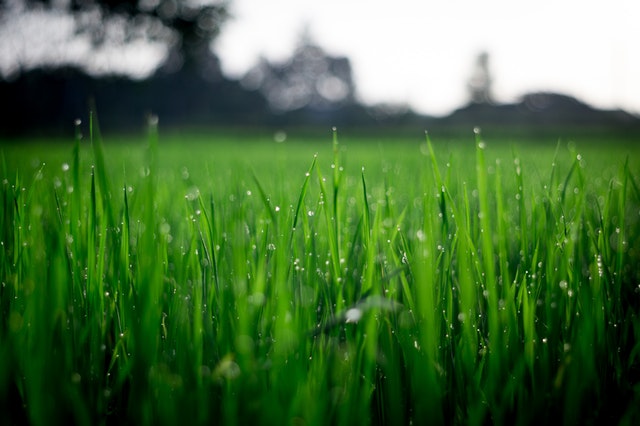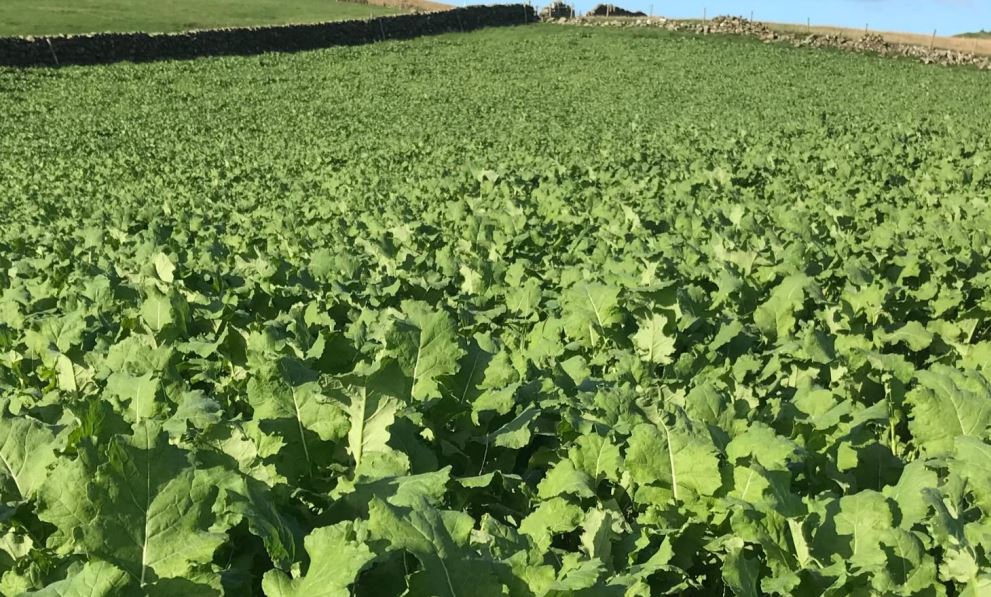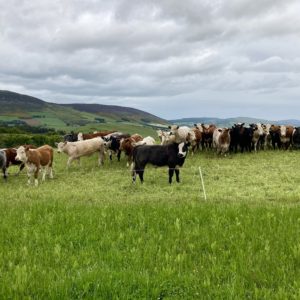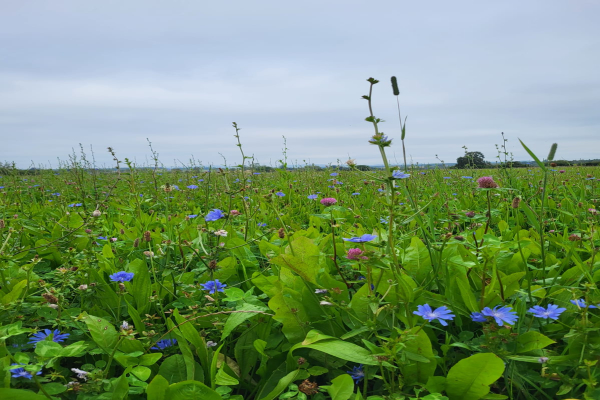Grassland
Grassland
Improvements in grassland and grazing management can offer significant opportunities for livestock farms throughout Scotland. Grass is the cheapest feed available on the farm, but it is only cheap if the pastures produce a high yield and a high proportion of that yield is utilised to produce meat and milk.
After soil health (covered in the soil section), the next area for pasture improvement is grazing management. Set stocking and rotational grazing are the two overarching grazing management techniques. Set stocking is where animals are kept in a field for a duration greater than two weeks. Rotational grazing entails frequently shifting of livestock through a series of small fields or paddocks. Where set stocking offers the benefit of simplicity, it does not maximise the utilisation of the grass, areas of the field are rejected and wasted where other areas of the field might be overgrazed.

Rotational grazing results in greater utilisation of grass which means that the animals are faced with a more even sward of quality grass when they enter a paddock. The improved quality, quantity and utilisation of grass under a rotational grazing regime enables greater stocking rates, improved animal performance and reduced inputs (e.g. nitrogen and concentrate feed).
Finally sward regeneration with reseeding can benefit pastures that have a high proportion of weeds. The longevity of a reseed will be compromised if soil and grazing management are inadequate.
Grazing for Profit and Biodiversity: Adaptive Grazing
In this factsheet we look at the three rules of Adaptive Stewardship Grazing developed by Understanding Ag in the States to manage grassland regeneratively through adaptive livestock grazing. Read more

Forage and Grass Guide
Well planned and managed forage and grassland provides an opportunity to incorporate more resilience into our beef and sheep businesses.
This guide will take you through some of the options available for grass, legume, herb and forage crops, the key agronomy and management required to successful increase overall yield from forage for a beef and sheep system. Read more >>

Grazing for Profit and Biodiversity: Grazing Strategies

Bracken Control Group - Bracken Briefing
The Bracken Control Group was set up in 2011 to look at the wider control measures for bracken and raise awareness of other techniques available for bracken control aside from spraying. This information is produced into easily digestible briefings and you can read all of these briefings by clicking on this link - Bracken Control Group - Briefings
2020 Grazing Vlogs
A series of video updates following farmers through a grazing season showing the challenges and benefits of operating a rotational grazing system for livestock performance and welfare.
The farmers include:
- William Willis, Dairy Farmer, Aberdeenshire
- Ian Dickson, Beef and Sheep Farmer, Isle of Bute
- Giles Henry, Beef Farmer, Selkirk
- Jamie Leslie, Beef and Sheep Farmer, Shetland
The four farmers are using rotational grazing to make more from grass. Join us in following their developments at the 2020 grazing season unfolds.
You can view all of the videos on the FAS YouTube Channel. As well as sign up to the FAS Grazing Playlist.

